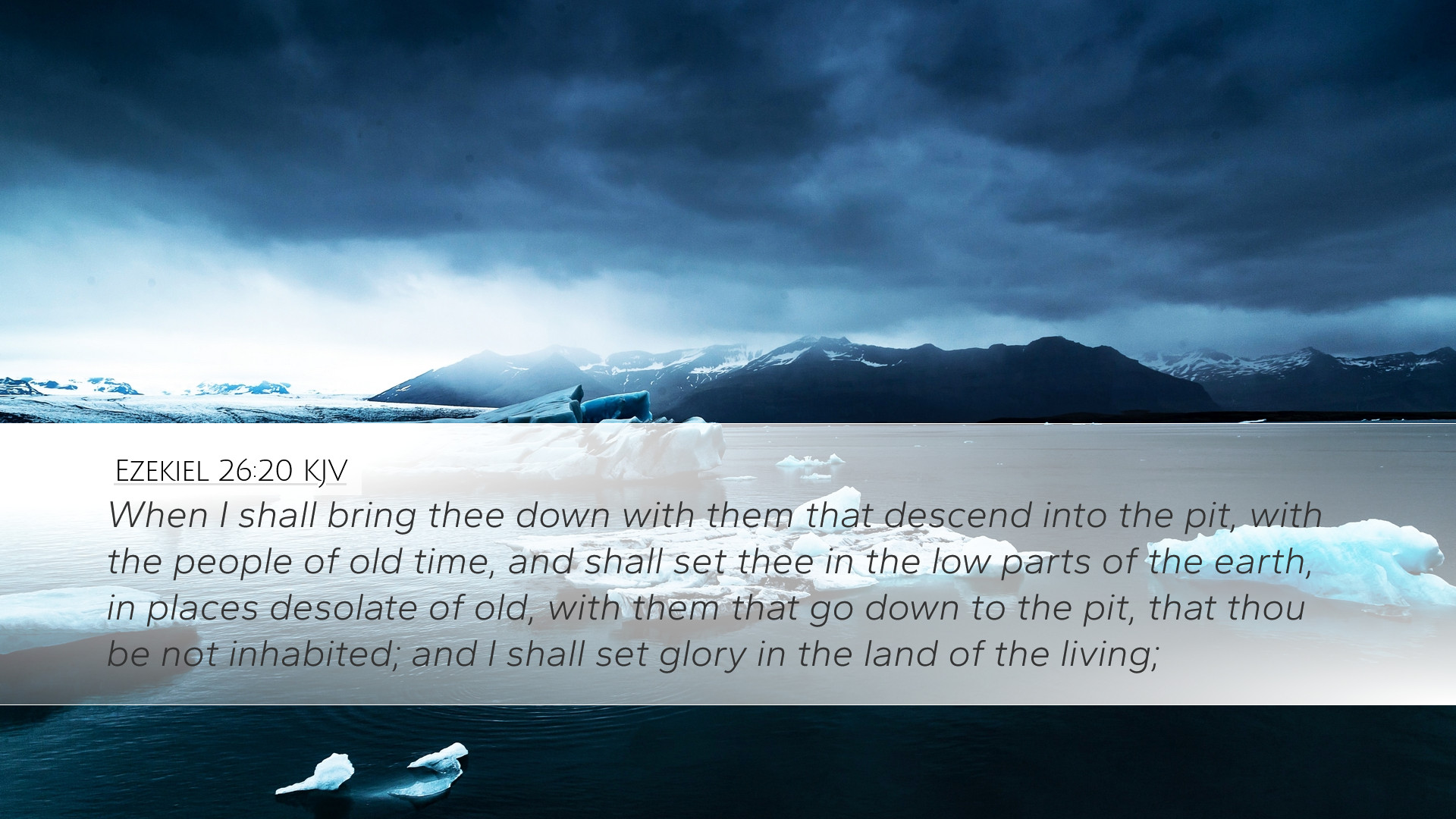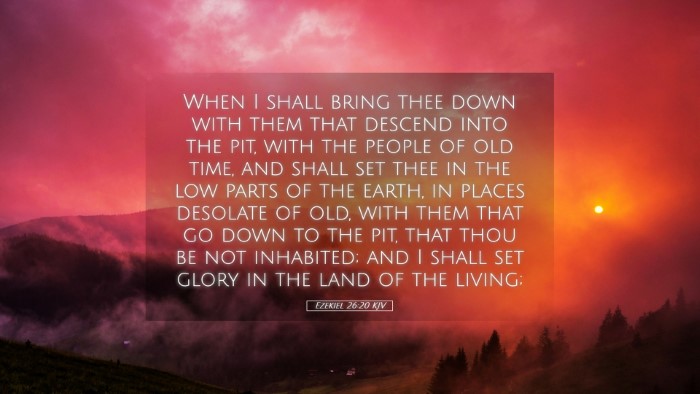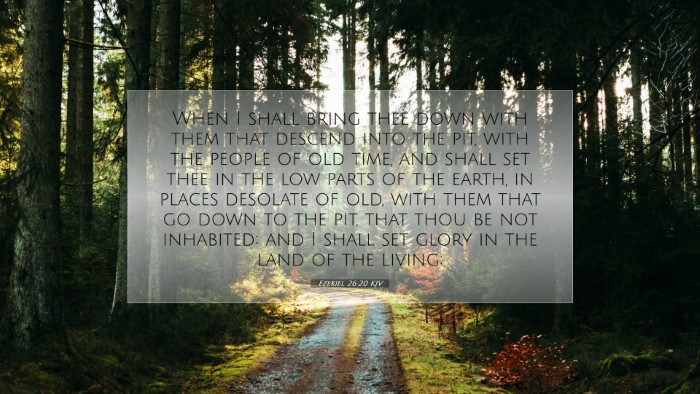Ezekiel 26:20 - Commentary Summary
Ezekiel 26:20 states: "Then will I bring thee down with them that descend into the pit, unto the people of old time; and I will set thee in the low parts of the earth, in places desolate of old, with them that go down to the pit, that thou be not inhabited; and I will set glory in the land of the living."
This verse forms part of a prophetic judgment against Tyre, a prominent city and center of commerce in the ancient Near East, renowned for its pride and resilience against foreign dominion.
Contextual Understanding
Throughout Ezekiel, the prophet communicates God's impending judgment on various nations, using Tyre as a representative of the pride and folly of those who resist divine authority. The imagery employed here is particularly significant, as it speaks to the ultimate humiliation of this once-great city.
- Ezekiel's Role: As a prophet in exile, Ezekiel serves as a voice for God's judgment and repentance, revealing the transgressions of nations like Tyre.
- Historical Context: Tyre was a major maritime power, whose arrogance and self-sufficiency led to its downfall, as indicated in this prophecy.
Thematic Analysis
The main themes surrounding this passage include divine judgment, the fate of the proud, and the sovereignty of God over nations. Each commentary elucidates these themes with varying insights.
1. Divine Judgment
Matthew Henry, in his commentary, emphasizes that God's judgment is both just and inevitable. Tyre's longstanding pride and worldly pursuits were met with divine retribution as a warning to all nations regarding matters of pride.
2. The Fate of the Proud
Albert Barnes notes that being “brought down” implies not merely a physical downfall but also a spiritual and moral degradation. The prophetic word signifies Tyre's transition from a position of power to one of devastation and desolation.
3. Sovereignty of God
Adam Clarke highlights the sovereignty of God illustrated through Tyre’s fate, reinforcing that no earthly power can stand against divine decrees. This proclamation serves as an assurance for believers of God's ultimate control over human affairs.
Interpretive Insights
Commentators agree on the interpretive significance of the "pit" mentioned in verse 20, which symbolizes death and destruction. This imagery is prevalent throughout the prophetic literature, representing the finality of divine judgment.
- Symbolism of the Pit: The pit is often viewed as a metaphor for Sheol, the realm of the dead, indicating complete loss and separation from national identity and worship.
- Desolation of Tyre: The promise that Tyre would not be inhabited reflects the complete destruction of its cultural and economic identity—a stark portrayal of divine justice.
Pastoral Applications
For pastors and theologians, Ezekiel 26:20 offers rich material for understanding the consequences of pride and the necessity of humility before God. The narrative serves as a powerful reminder for congregations about the character of God regarding judgment and mercy.
- Humility Before God: Congregations are encouraged to remain humble and dependent on God's grace, recognizing the transitory nature of human achievements.
- Warning Against Complacency: The fate of Tyre serves as a warning against complacency in faith, urging believers to strive for a genuine relationship with God.
Conclusion
Ezekiel 26:20 presents a profound theological statement about the consequences of pride, the reality of divine judgment, and the prophetic assurance of God’s sovereignty. In synthesizing insights from notable commentators, it becomes evident that scripture continues to resonate with timeless truths relevant for all sectors of the faith community.
Emphasizing the fragility of earthly power, this verse encourages believers to cultivate a heart of humility, trusting in the Lord and honoring His commands.


